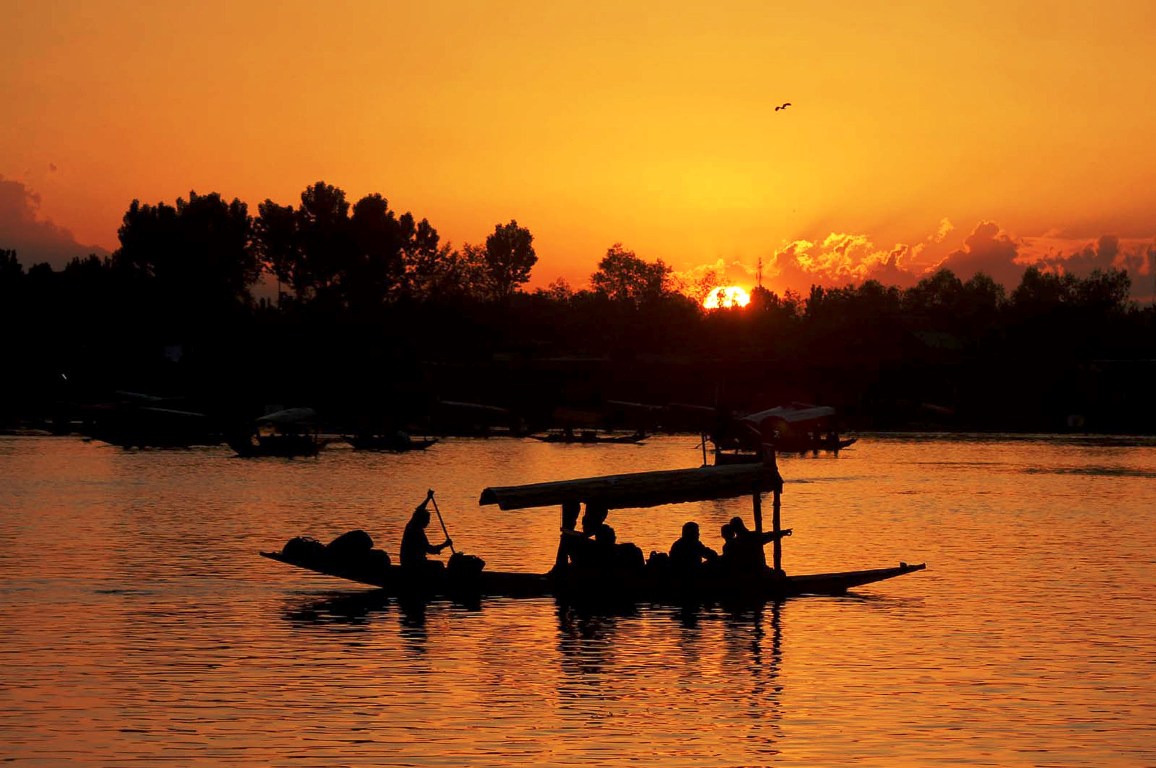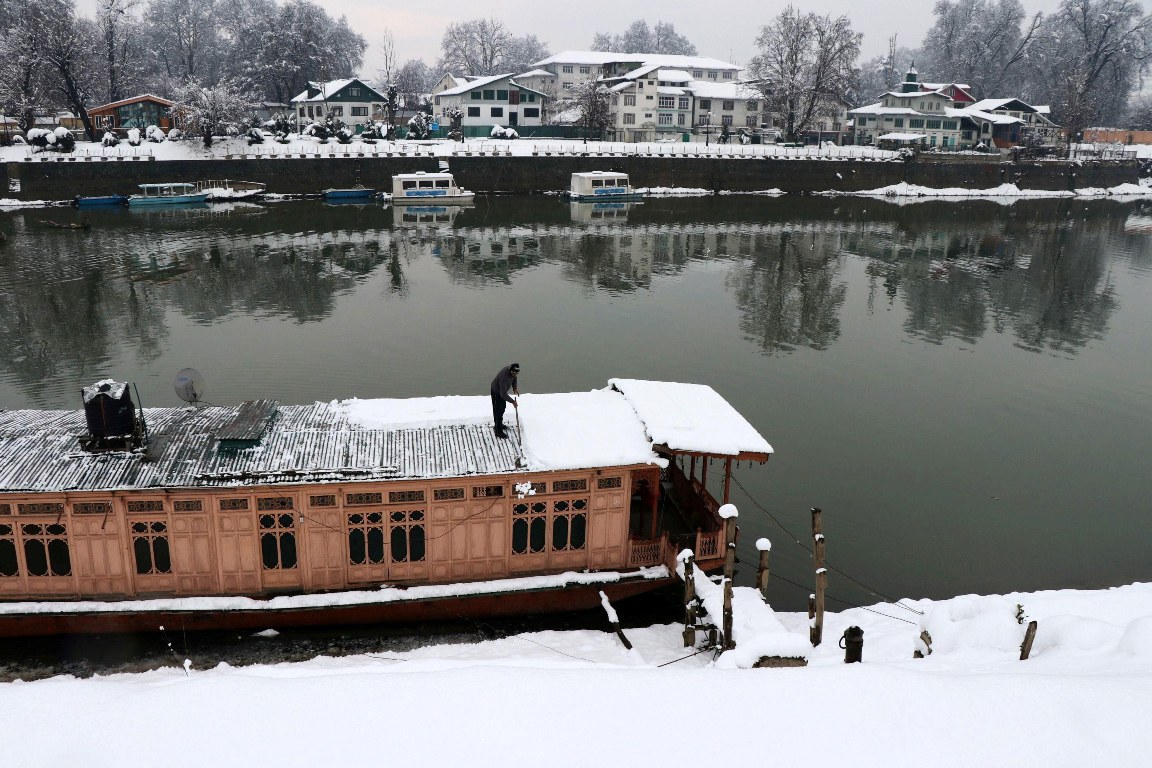[ad_1]
A cultural anthropologist gives time to Kashmir’s famed Dal Lake and generates an impressive piece of literature, writes Insha Shirazi

Michael J Casimir’s The Cultural Ecology of the Dal Lake in Kashmir is a thorough and instructive exploration of one of the most exquisite and significant bodies of water. The lake has natural and cultural significance. Well known for its beauty, the lake is a significant source of income.
Casimir paints a clear picture of how the lake has been shaped over the centuries and how it still matters for contemporary culture and ecology. A professor of cultural anthropology at the University of Cologne, Casimir has spent a lot of time in the field studying ecology, economy, and environmental management.
The book goes into great length on the lake’s intricate ecosystem, the history of houseboats, and water transportation. It offers details about the evolution of tourism and its literal paralysis owing to political upheaval in the 1980s and 1990s. While detailing Kashmir’s transition to Islam, the book offers a sketch of Kashmir’s “caste systems”, sectarianism, marital customs and social structure.
The book dives into the ins and outs of Dal Lake while detailing its ecosystem. It explains the development of the houseboat and water transportation.
The key focus of the book is the exploration of the lifestyle of the Hanji people, a group of fishermen living in the lake and how they play an essential role in the advancement of culture, the economy, and aesthetics. He provides an in-depth look at the Lake market gardens, raised fields, and floating gardens, and how the residents make an artificial landscape on the water and plant vegetables, flowers, weeds, and water lilies.
The book explains how market gardeners plan their gardens based on weather trends and how the 2014 flood affected the growth of the lake. Offering interesting insights into intriguing lotus gardens, the book explains how the lotus rhizomes are a source of revenue. An interesting and engaging read, the book provides an enlightening and informative look into the lives of the Hanjis and how essential they are to the economy and ecology of Srinagar city.

The Houseboats
Detailing the history and evolution of the houseboats, the book does not forget to link the other economies and offer a window to explain how modern technologies like the cell phone has impacted space. It offers an unbiased examination of the impacts of human-driven development on the ecology of the lake and its inhabitants, exploring both the positive and negative effects. He also provides a thorough discussion of the lake’s many fish species, vegetation, and water birds, as well as the issue of sewage pollution. The author offers insight into the lake’s ecology and how it has changed over the centuries as a result of human-driven development.
The Pollution
Off late, the lake has been facing severe environmental issues due to the unregulated construction of various buildings on its banks, and the overuse of fertilizers for agricultural purposes. Massive concentration of fertilizers has resulted in the death of many native fish and aquatic species, including the now incredibly rare Schizothorax niger.
The government has relocated many of the local fishermen. It has made efforts to improve the lake’s condition, such as implementing sewage treatment programmes and providing better access to roads, basic sanitation, and quality education. Flagging the issues facing the lake, particularly its deterioration due to sedimentation, domestic sewage, and other human activities, the author has observed that success is eluding the policymakers.
Painting a grim picture of Lake’s future, the author believes that proper funding and support from the government can help the water body to regain its pristine status. The author argues that the political forces in power often have conflicting interests, and this can lead to the people of Kashmir being disconnected from their spiritual roots. To protect the iconic Lake, the author argues that both the public and the governing authorities must engage in actions that uphold the teachings of Islam. This will not only preserve the natural beauty of the lake and its surroundings but also preserve the culture and spiritual identity of the region. To achieve this goal, it is crucial that the general public cooperates with the government and that the government implements its policies in a manner that serves the best interests of the people.
[ad_2]
#Lake #Exploration
( With inputs from : kashmirlife.net )